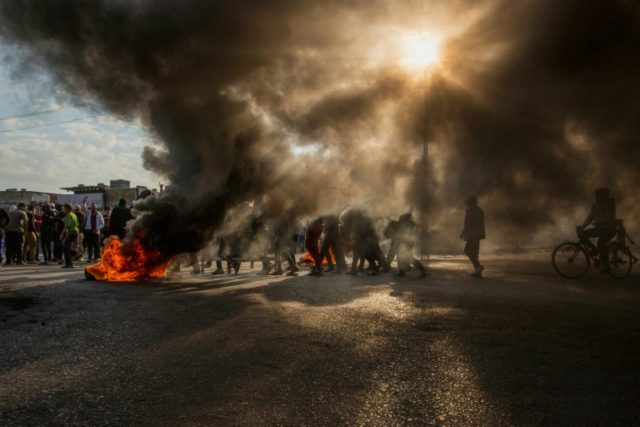Security forces killed 13 protesters on Sunday in one of the bloodiest days of the Iraqi protest movement, now in progress for almost two months.
Some of the killings appear to have resulted from the deliberate use of live ammunition by security forces, while others occurred when tear gas canisters struck protesters in the head.
The Associated Press quoted Iraqi officials who tallied seven dead in the province of Basra, near the important oil port of Umm Qasr, plus four in Nassiriya, one in Najaf, and one in Diwanieh. These 13 deaths brought the total number of people killed in the protests to 342. At least 150 people were also injured on Sunday.
Local Media filed reports of more injuries and deaths on Monday, particularly in Baghdad, where demonstrators often construct blockades on important bridges.
The security response was especially forceful near Umm Qasr because protesters were attempting to cut off the roads leading to the port through which the majority of Iraq’s oil exports flow. Much of Iraq’s imported food and medicine arrives through the port as well.
Roads were also blocked in Basra, shutting down government agencies by keeping workers from reaching their jobs, and in the Shiite holy city of Karbala, preventing access to a number of religious sites. The security response in Karbala included the unusual spectacle of police throwing stones and Molotov cocktails at protesters.
In Nassiriya, government offices were set on fire and schools were closed on Sunday (the first day of the work and school week in Iraq) despite Education Ministry orders to keep them open.
Protesters say they remain determined to bring down the government of Prime Minister Adel Abdul-Mahdi, who has unsuccessfully attempted to mollify them with concessions such as new elections and increased public subsidies.
U.S. Vice President Mike Pence paid a surprise visit to Iraq over the weekend, visiting officials in Iraqi Kurdistan and bringing Thanksgiving food to U.S. soldiers at the Ain al-Assad airbase. He did not meet with the government in Baghdad, possibly due to security concerns, although he did speak with Prime Minister Abdul-Mahdi by phone.
This prompted the Iranians to jeer that his visit was a “failure” and evidence that American influence in Iraq is waning. Most observers see the protest movement as a much more direct threat to Iran’s influence in Iraq, since the protesters are outspokenly critical of Tehran’s control over Baghdad politics, and the Iranian regime has its own protest movement to worry about at the moment.

COMMENTS
Please let us know if you're having issues with commenting.